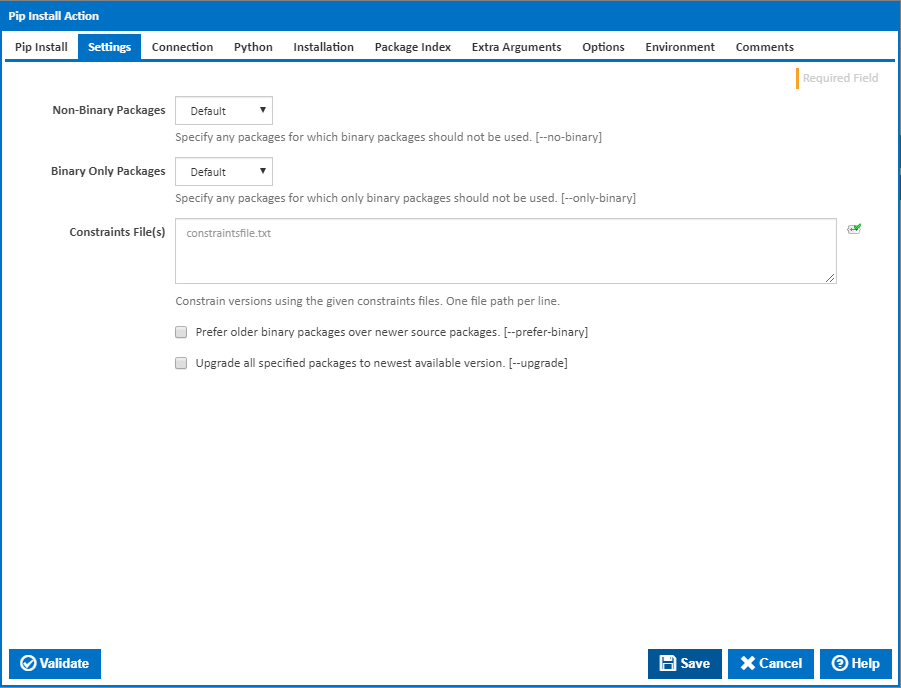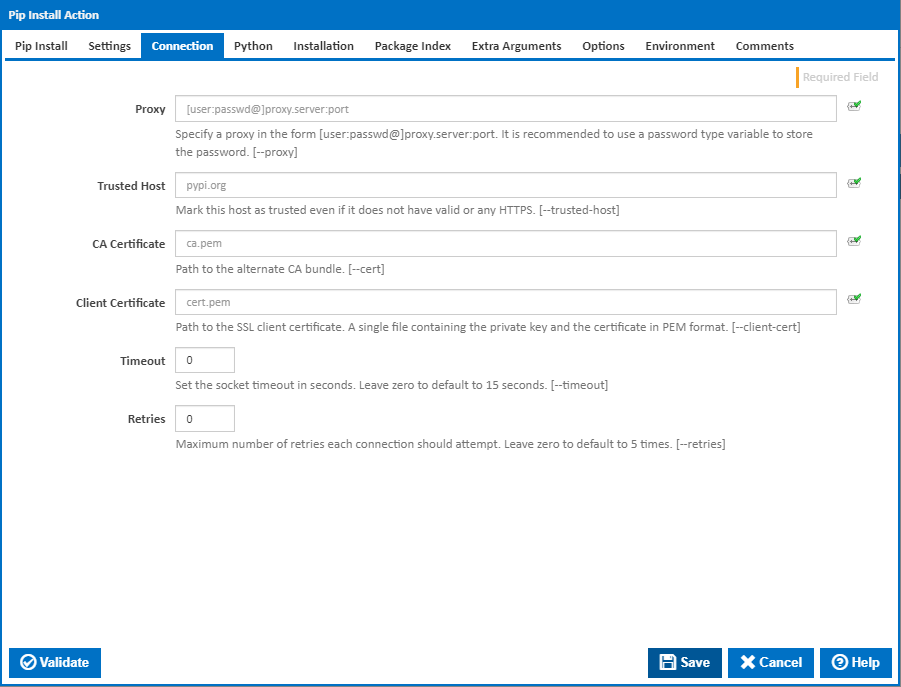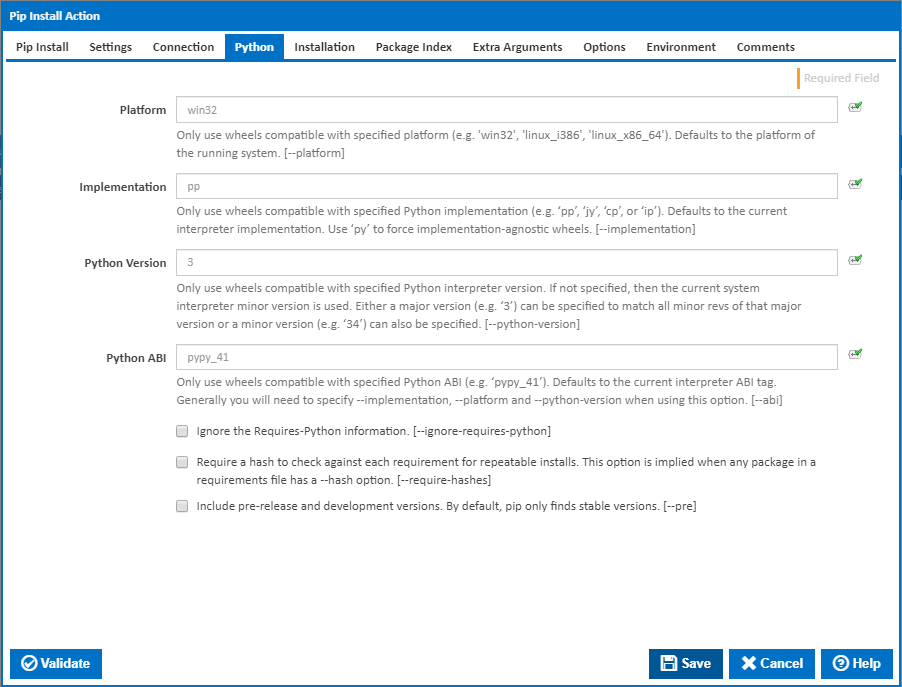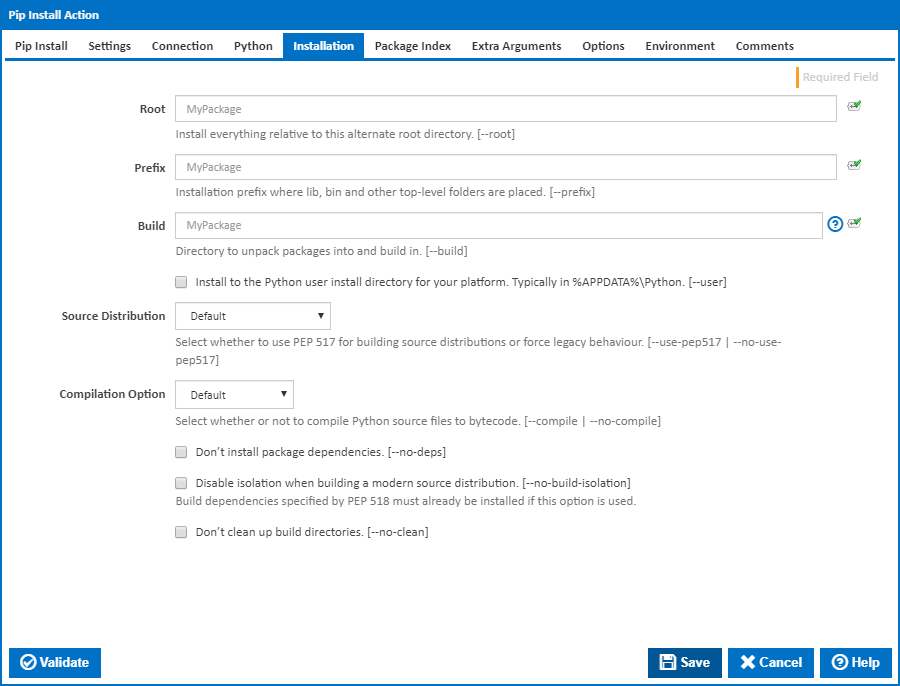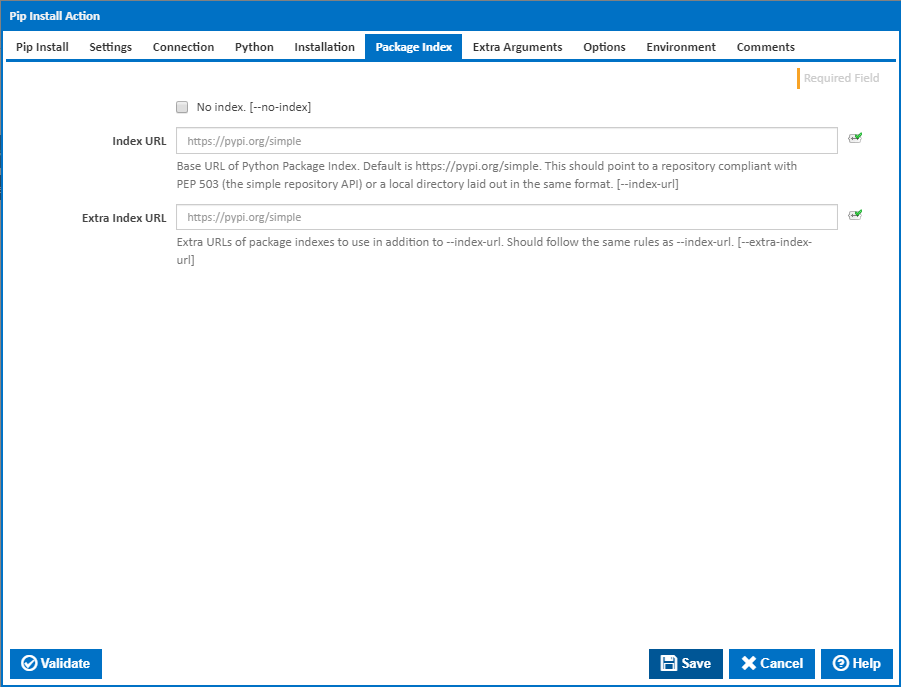...
If this is ticked and exists, the pip executable in the virtual environment scripts folder will be used instead.
Using
The Using drop down is populated by any property collector properties whose namespace matches the pattern defined by the Pip Install action. The pattern for this action is ^Pip\..*. The default property collector searches the environment path for "pip.exe".
If you create a property collector for this action, make sure you select the Path Finder PlugIn type and give it a name that will match the pattern above in blue. Example names listed here, search the table's Plugin column for "Pip".
For more in-depth explanations on property collectors see Property Collectors.
Alternatively, you can select the Custom option from the Using drop down list and specify a path in the resulting input field that will be displayed. Please read Why it's a good idea to use a property collector before using this option.
Settings
Non-Binary Packages
...
If this is ticked, installed packages and its dependencies are ignored so files are overwritten. [--ignore-reinstalled]
Connection
Proxy
Specify a proxy in the form [user:passwd@]proxy.server:port. It is recommended to use a password type variable to store the password. [--proxy]
Trusted Host
Mark this host as trusted even if it does not have valid or any HTTPS. [--trusted-host]
CA Certificate
The path to the alternate CA bundle. [--cert]
Client Certificate
The path to the SSL client certificate. A single file containing the private key and the certificate in PEM format. [--client-cert]
Timeout
Set the socket timeout in seconds. Leave zero to default to 15 seconds. [--timeout]
Retires
Maximum number of retries each connection should attempt. Leave zero to default to 5 times. [--retries]
Python
Platform
Only use wheels compatible with specified platform (e.g. 'win32', 'linux_i386', 'linux_x86_64'). Defaults to the platform of the running system. [–platform]
Implementation
Only use wheels compatible with specified Python implementation (e.g. ‘pp’, ‘jy’, ‘cp’, or ‘ip’). Defaults to the current interpreter implementation. Use ‘py’ to force implementation-agnostic wheels. [–implementation]
Python Version
Only use wheels compatible with specified Python interpreter version. If not specified, then the current system interpreter minor version is used. Either a major version (e.g. ‘3’) can be specified to match all minor revs of that major version or a minor version (e.g. ‘34’) can also be specified. [--python-version]
Python ABI
Only use wheels compatible with specified Python ABI (e.g. ‘pypy_41’). Defaults to the current interpreter ABI tag. Generally you will need to specify --implementation, --platform and --python-version when using this option. [--abi]
Ignore the Requires-Python information.
If this ticked, the Requires-Python information is ignored. [--ignore-requires-python]
Require a hash to check against each requirement for repeatable installs. This is implied when any package in a requirements file has a --hash option.
If this is ticked, a hash is required to check against each requirement for repeatable installs. This is implied when any package in a requirements file has a --hash option. [--require-hashes]
Include pre-release and development versions. By default, pip only finds stable versions.
If this is ticked, pip will also find pre-release and development versions. By default, pip only finds stable versions. [--pre]
Installation
Root
Install everything relative to this alternate root directory. [--root]
Prefix
Installation prefix where lib, bin and other top-level folders are placed. [--prefix]
Build
Directory to unpack packages into and build in. [--build]
Install to the Python user install directory for your platform Typically in %APPDATA%\Python.
If this is ticked, the packages will be installed to the python user install directory for your platform. Typically in %APPDATA%\Python. [--user]
Source Distribution
Select whether to use PEP 517 for building source distributions or force legacy behaviour. [--use-pep517 | --no-use-pep517]
Compilation Option
Select whether or not to compile Python source files to bytecode. [--compile | --no-compile]
Don't install package dependencies.
If this is ticked, package dependencies are not installed. [--no-deps]
Disable isolation when building a modern source distribution.
If this is ticked, isolation is disabled when building a modern source distribution. [--no-build-isolation]
Don't clean up build directories.
If this is ticked, build directories are not cleaned. [--no-clean]
Package Index
Extra Arguments
...
